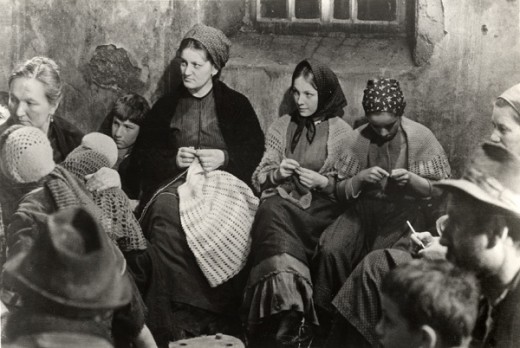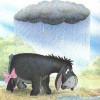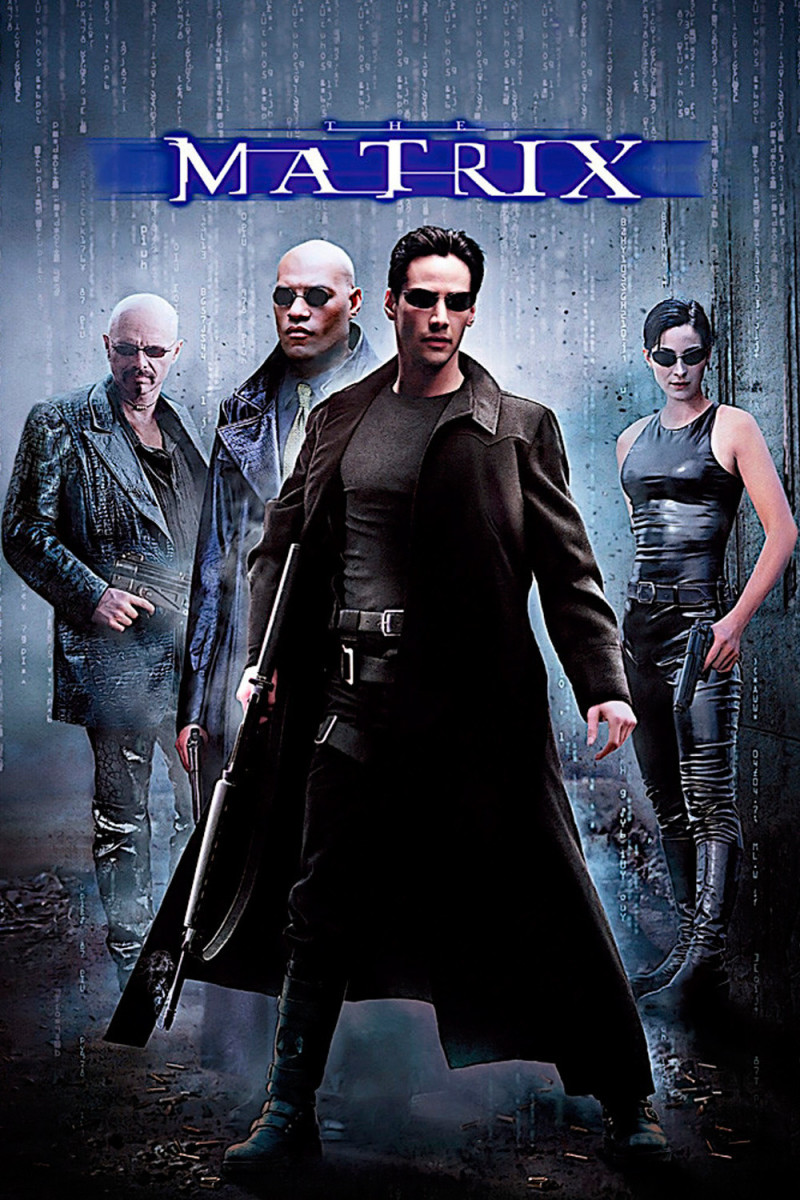Bucket List Movie #443: The Tree of Wooden Clogs (1978)
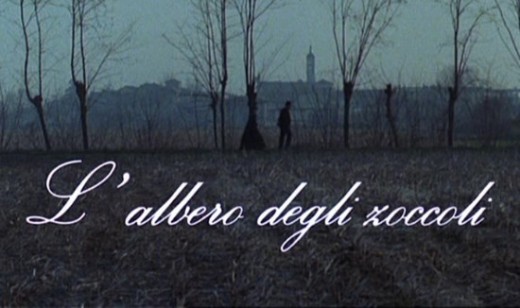

I will say up front that I am unfamiliar with the works of Italian director of Ermanno Olmi, having never seen even his more acclaimed work, Il Posto. I also know nothing about what Italian peasant life was like in the late 1890s (or in any era) and the Bergamo province. Watching The Tree of Wooden Clogs equipped with my own ignorance made watching it an interesting (though not thoroughly enjoyable) experience.
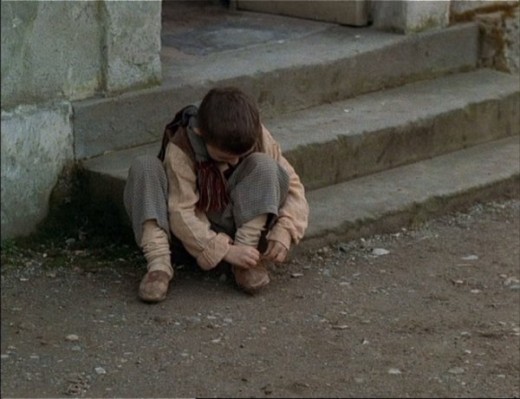
Olmi didn't cast a single professional actor in The Tree of Wooden Clogs; they were all residents of the Bergamo province, and according to IMDb, this is the only film in history to be spoken entirely in the Bergamasque dialect.
Tiresome Trivia of the Day: The Tree of Wooden Clogs is said to be Al Pacino's favorite movie. Who knew?
The film takes place in 1898, on a farming estate, where four working families reside for a wealthy landowner. There is an enormous cast of characters, and I couldn’t name them all to save the world (I’m in good company; apparently, from the reviews I've read, most other critics never bother, either). The most prominent storyline involves little Minec, who is the first of his siblings (or possibly even his family) to attend school. Unfortunately, the wear and tear of walking to school everyday, in addition to farm work, causes one of his wooden clogs to break apart. His father, out of desperation, cuts down a tree on the property (very illegal, since it’s the landlord’s) to make another clog, with dire consequences. I found it a rather sad meditation on the struggles of the poor, and what we will do for our loved ones... until I read Roger Ebert’s review, where he shared this insight:
But Olmi has a tendency to grow too sentimental about those lives. The film's central image is of the peasant Batisti cutting down the poplar tree to make the sandal for his child. As he sits in his kitchen shaping the clog shoe, organ music by Bach plays on the soundtrack. And later the peasant family will be thrown off the land for stealing the tree.
As we wipe the tears from our eyes, may we also be permitted to reflect that (a) cutting down a whole tree is a rather drastic way to obtain the wood for one single clog shoe, and (b) that if Olmi's reasoning is carried through to its conclusions, would we also get Bach playing over scenes of a modern Batisti sticking up a shoe store?
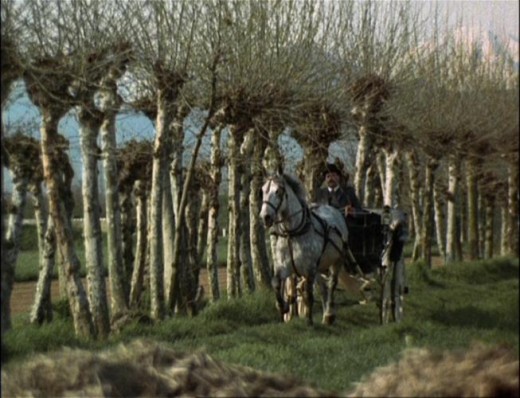
I must respectfully disagree with one element of Ebert's criticism; on the whole, I find that the movie presents the harsh realities of peasant life in turn of the century Italy in a decidedly unsentimental light. Olmi doesn't shy away from showing the grueling work that goes into planting and picking crops (you can almost smell the sweat and manure), and I must advise those who are tender-hearted towards animals to steer clear of The Tree of Wooden Clogs: just moments in, we are treated to a goose getting its head cut off and its blood drained. Later, a pig gets beaten and slaughtered in full view, no discretions shots to cushion the blow. If my research is to be believed, these are real animals being killed. Consider yourself warned.
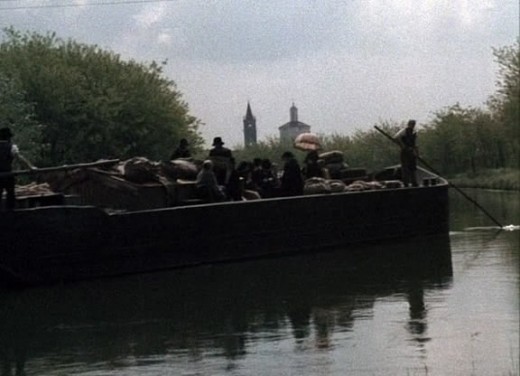
There is sort of a rugged attractiveness in the cinematography in The Tree of Wooden Clogs, reminiscent of Fiddler on the Roof, or (don't laugh) Monty Python and the Holy Grail. Yes, it's far from what we consider "pretty" scenery, but once you look past the mud and bare trees, there's a sort of saving grace of beauty, whether it's the sun shining through the mists, or the workers walking through a field of golden flowers. I can't help but wonder if Olmi wasn't influenced in some small way by Terrence Malick, who also finds the allure in harsh, rugged landscapes.
The thing I laud The Tree of Wooden Clogs for the most is its straightforward presentation of a life of hardship and poverty. I myself have been fortunate enough to never have experienced true poverty, and I can only imagine what it's like, but I refuse to alleviate my privilege-guilt by idealizing the alleged "simple life". In the three hours of this film, the lives of the farmers are revealed to be many things, "simple" isn't one of them. It is a rough, morning-to-night life of backbreaking, thankless labor that everyone, including the children, has to do. It is a life where, when a pregnancy is announced, the father can only sigh about having "another mouth to feed". It is a life where a man, so giddy with having come in possession of a gold coin, hides it in the muddy gap of a horse's foot, then goes mad with rage when it is lost. There is one character, a teenage boy who still wets the bed, who is sadly an object of ridicule (this is painfully compounded in one scene where he falls in manure), and his problem is never resolved, because it never can be resolved. They didn't have medication or therapy for bed-wetting back then, and the poor boy will most likely never be married or even taken seriously as an adult.
My point is, I take issue with people who sing the praises of poverty, a life that they have never known and will never know, because it is easy to romanticize something that you've never experienced. I am reminded of Gaughin's speech in the film Lust for Life, where he angrily tells Van Gogh about digging ditches in the blazing sun and working at the docks in winter so he can go on painting, and how there's "nothing beautiful or noble" about hard labor. This is not to say we should demonize the poor, but to simply grow up, gain perspective, and realize that all aspects of life are difficult in one way or the other, and that people are much more complex than their circumstances. I don't believe I'm superior to anyone because I'm privileged; likewise, I don't believe someone who has had it harder is superior to me. This is why I'm one of the few people on earth who didn't care for Beasts of the Southern Wild; I found its message that people who live in poverty and the fringes of society are inherently more virtuous than everyone else cloying and sanctimonious. Money may not be everything, but it's better to have it than not. Sure, we could argue that the people in The Tree of Wooden Clogs enjoy the simple things, but we never stop to ask ourselves if we'd ever switch places with them. Actually, maybe we do, but we are too embarrassed to admit the truth aloud. I certainly don't dismiss the idea that the simple things in life are the things that matter, but that isn't the moral of The Tree of Wooden Clogs. If anything, it shows that simple is not the same as easy, and when you see how they barely have the energy to really enjoy themselves after toiling in the fields all day, it starts to sink in. I'd be lying if I said I enjoyed The Tree of Wooden Clogs (it's a very hard three hours), but I don't think it was meant to be enjoyed, but rather to be treated as a learning experience about a very particular time and place. Olmi succeeds in objectively telling a harsh story unadorned by any political or moral agenda. Watch it, and hopefully you'll realize that it's okay that your life is okay.
